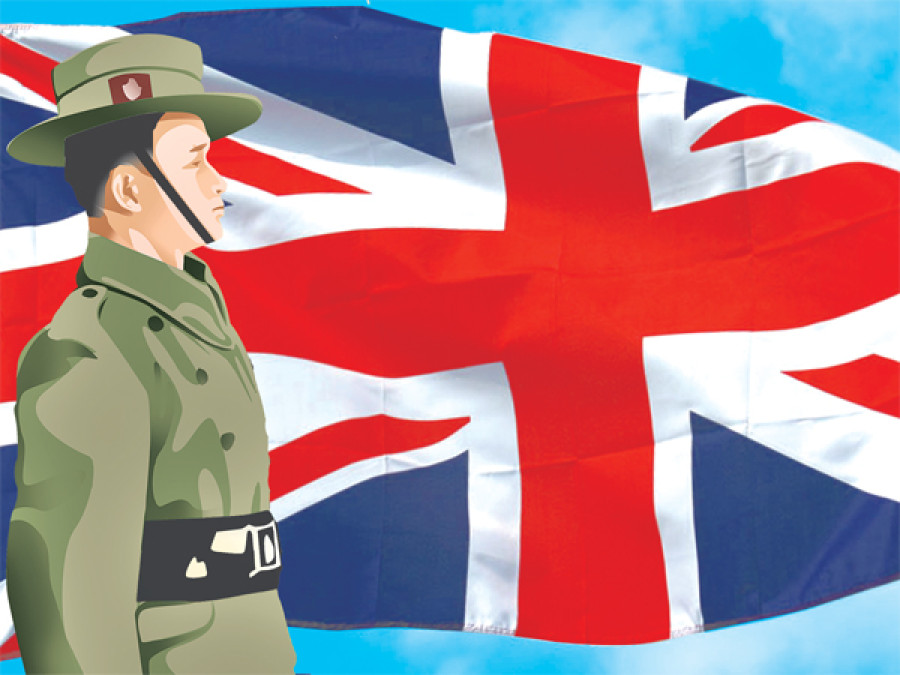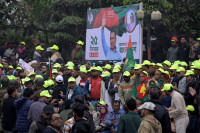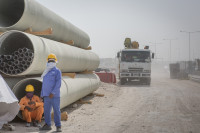Opinion
A sense of place
According to a study, Nepalis choose to settle and work in Britain for the future of the children
Among the changes I noticed in Britain over the years is the niche that the Nepalis have created for themselves in the demographic structure of the country. This revelation occurred to me after I received an invitation by a prominent researcher and scholar, Chandra Laksamba. A retired British Gurkha, Chandra completed his PhD in continuous learning from the University of Surrey while he was still serving as a British Gurkha soldier. He gave me an overview of how Nepalis have been living and faring in Britain. Chandra is involved in a demographic research with other academicians like David Gellner of Oxford University and Krishna Adhikari of the University of Reading, among others.
Among all the researches, what struck me the most was the study of the variety of the Nepali population in the demographic structure of Britain. In a presentation, Chandra painted a very interesting picture of the Nepalis, their settlement patterns, and most important of all, their adjustments. Before this meeting, he had taken me to Aldershot, a little Nepali town, and to other places to meet Nepalis who have moved to and settled in Britain. But what interested me most were the findings of the Centre for Nepal Studies United Kingdom. On reading the materials, I could trace a very well trodden path of social research.
For the children
Over 72,000 Nepalis live in Britain according to a survey carried out some years back. The number may have gone up now. But it was the results of the studies and interpretations that interested me rather than the figures or the graphs. In their overview of the Nepalis in the UK, Chandra Laksamba, Krishna Adhikari and others show that the Nepalis are not economic migrants in Britain. Quite a number of those who have settled in Britain have brought money from Nepal to buy houses, which means they live in Britain out of choice and not sheer compulsion. Most of them say that they chose to do so for their children’s education. Chandra’s figures show that Nepali children are performing excellently in British schools. His results present a cross-ethnic picture of children’s performances.
The conclusion of the study is that the present generation of Nepalis have taken up the cudgels to settle and work here for the future of the children. The academic performances of the kids show that they are going to be very successful. I was heartened to hear and read about such optimism. Some vibrant areas that Chandra showed me in that town were dead quarters until the Nepalis bought those houses and started a living there. They have made it easier for the British companies to employ them in works that were previously done by the natives whose labour cost was high for them. It is partly these scholars’ interpretations and partly the figures that I read which helped me to see the brighter side of the Nepalis’ future in Britain.
Poems to the rescue
Nepali diaspora in Britain has a very interesting texture. I used a few caveats in my interpretation of the diaspora in Britain especially in the context of the Nepalis settling with dignity and historicity. The historicity of the British Gurkhas has generated a number of arguments in Nepal questioning what one may call the glorification of the grand narrative of the British Gurkha. But as a smallish brilliant soldier Major Surya Rai, Deputy Chief of Staff gave me an overview of the British Gurkhas and introduced me to the Headquarters Brigade of Gurkhas and also arranged for me to meet Major Yambahadur Rana, the Officer Commanding and gave a guided tour of Sandhurst college, I felt a sense of pride in the degree of confidence and the deep-seated visions of the Gurkhas.
The British Gurkhas who were allowed to settle in Britain began a new era in terms of the settlement and carving out a space in this country. At the diaspora discourse where I presented after Chandra Laksamba’s report, most of the attendees were ex-British Gurkhas among whom half were retired in their early thirties on pension. But quite a number of them had taken up writing literature; poetry is their favourite genre. Though the poems are rather hastily written in these collections, they show the British Gurkhas seeking to poeticise their past and the future that lies ahead. These persons, through these poems, seek to create an identity because this genre helps them feel emotionally large. They were divided between self-respect and a new historicist recapitulation of their not-so-old past.
Conditions of listening
But there is still another level of history—the overall history of the British Gurkhas that is being reinterpreted in the changing context of Nepal. The subject is linked to ethnic identity. In Nepal, some argue that the recruitment of the British Gurkhas was encouraged by the Khas rulers, especially the Ranas who wanted to send the ethnic youths to go in the battles and perish. However, scholars like Chandra Laksamba and others feel that is entirely not the case. It is the result of a tacit agreement between the two parties. I found this debate very productive.
In my diaspora discourse, I said that we have to see the distinction between the audience and the producer or the acting agency. We should see who is speaking and who is listening and what the ‘conditions of listening’ are. But then who speaks also should be seen in the structure of the audience. We should measure diasporic consciousness through the degree of the distancing of the population from the space of origin and the time of the grand exit. On the whole, it was a revealing experience for me.




 6.12°C Kathmandu
6.12°C Kathmandu








%20(1).jpg&w=300&height=200)

